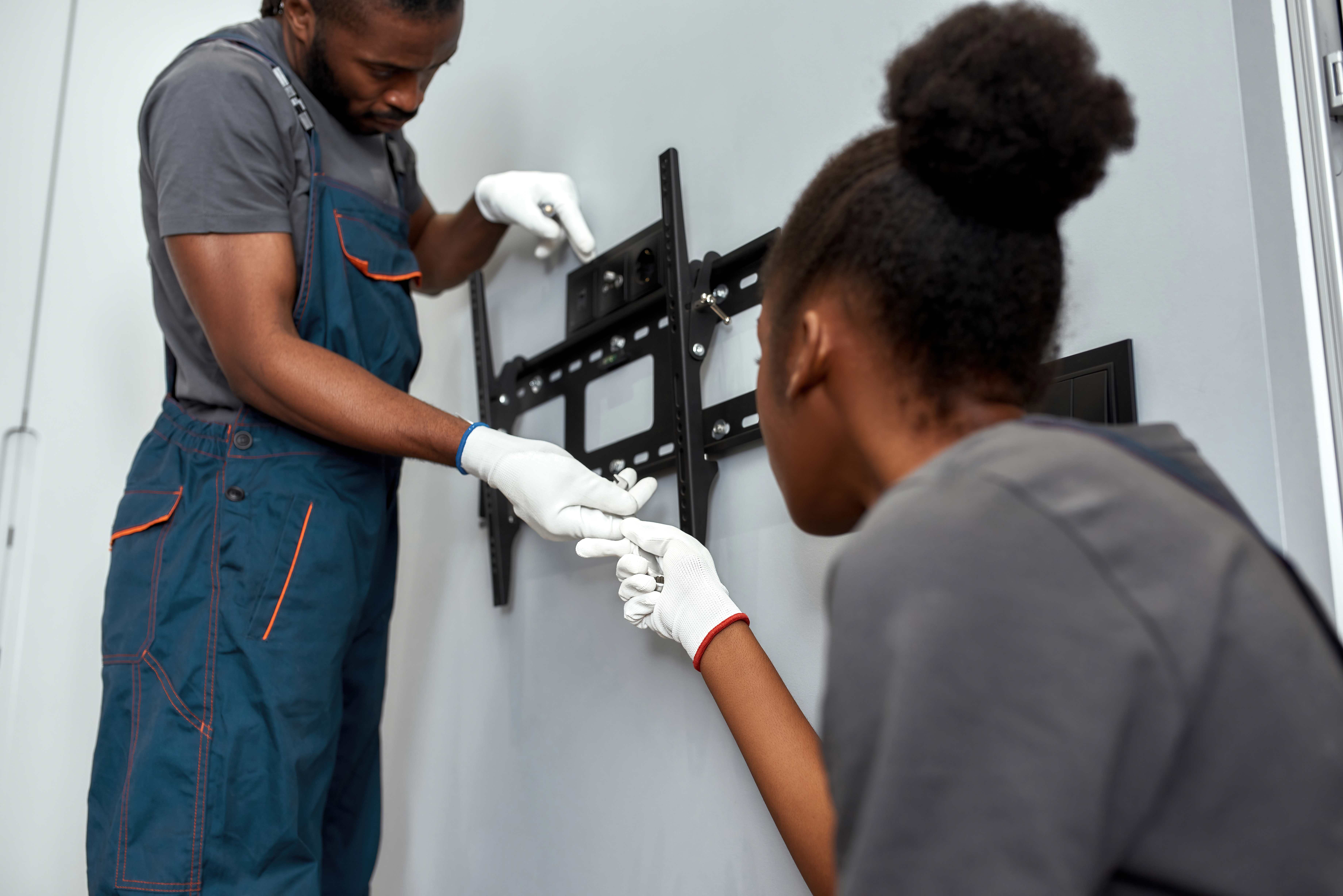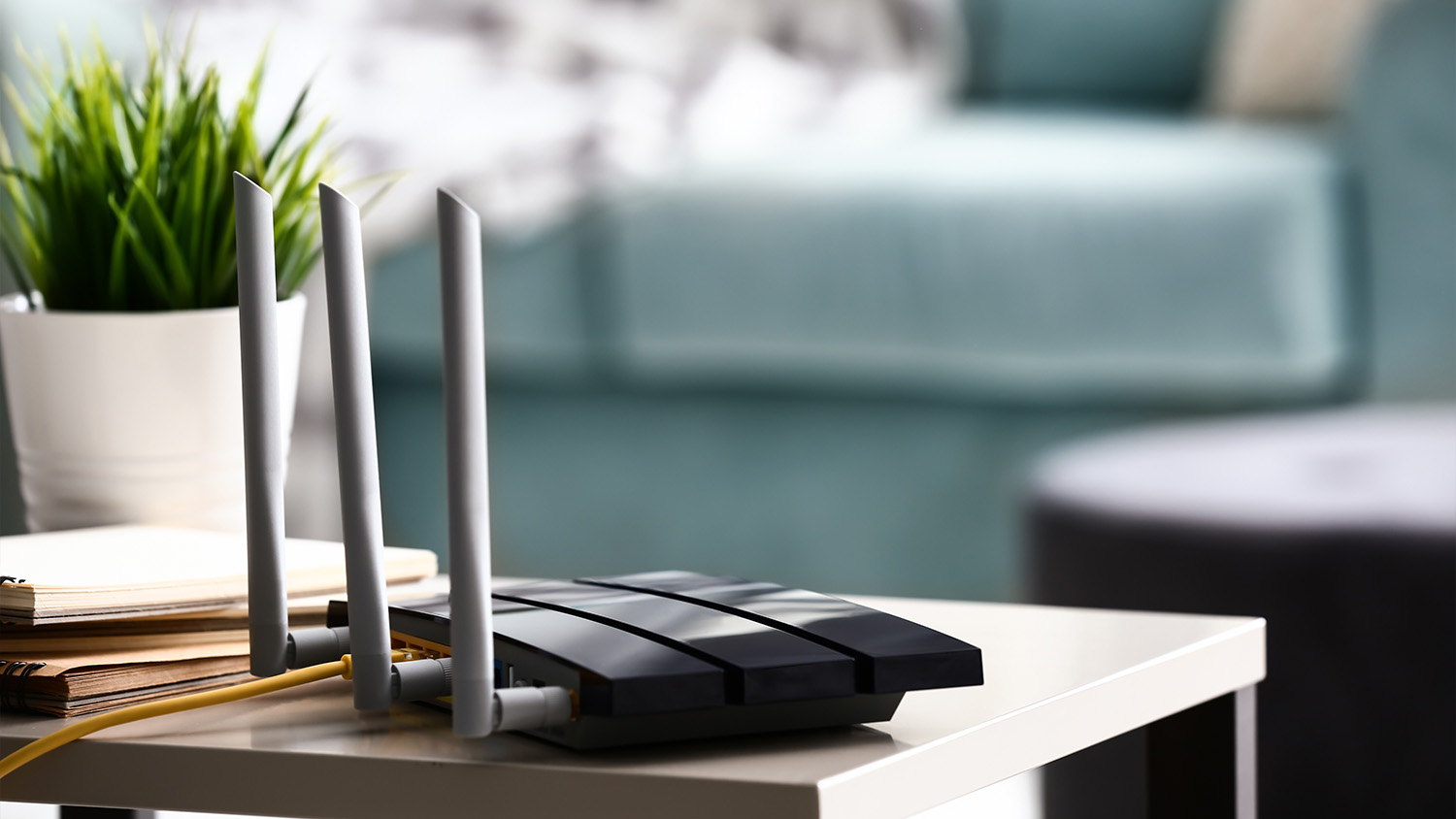
Learn who to hire to mount your TV on the wall—the best choice, what pros do, and costs—so you can compare quotes and book confidently.
Surround sound installation costs an average of $785


Installing a surround sound system in your home costs $785 on average, ranging from $241 and $1,335.
The number of rooms, wired vs. wireless setups, speaker mounting options, and labor costs can all affect the total price.
Surround sound systems enhance your entertainment experience with immersive 5.1 or 7.1 audio for movies, music, and gaming.
Hiring a pro ensures your setup is optimized to suit your space, installed accurately, and calibrated correctly.
This article was updated using automation technology and thoroughly reviewed for accuracy by HomeAdvisor Editor Ryan Noonan.
Installing a surround sound system costs an average of $785, with most homeowners paying between $241 and $1,335. High-end installations can reach up to $4,698. A pair of in-wall speakers with wiring costs $200 to $500, while a multiroom system runs $750 per room, depending on components and customization.
Several factors influence the cost of installing a surround sound system. Here's what affects your total price.
Adding surround sound to additional rooms increases the cost by $500 to $1,000 per room for whole-home systems. Some companies offer package deals that reduce the price per room when outfitting multiple rooms simultaneously.
Wired systems cost less to purchase but more to install due to the need for running wires through walls and ceilings, which minimizes clutter. Each wire adds $35 to $75 to your total cost, depending on the distance required.
Mounted speakers are a more affordable option since they can be placed on shelves or existing brackets. Integrated speakers require cutouts in the walls, adding $20 to $30 per cutout, which can increase costs in multi-speaker systems like 7.1 setups.
A surround sound system includes several components, each with its own cost range. Depending on your design, you may not need every part listed below. For example, older systems may not require smart hubs, while some newer designs use fewer wires.
| System Component | Average Price Range |
|---|---|
| Speakers | $50–$500 each |
| In-wall speaker wiring | $35–$75 per set |
| Brackets | $10–$50 |
| Back-boxes | $30–$50 |
| Amplifier | $400–$1,000 |
| Smart hub | $500+ |
Hiring a local electrician or speaker installation expert costs $50 to $100 per hour. A standard installation in an average room takes two to three hours, but costs can increase with more complex setups.
The location of the surround sound speakers impacts the installation cost. The easier it is for the professional to install, the lower the installation costs. Keep in mind that free-standing speakers are easier to install than those placed in a ceiling or behind walls.
Installing in-ceiling speakers costs $250 to $500 per pair, plus labor and wiring. For complete surround sound, expect to pay $750 per room. This doesn't include other home theater components, which can bring the total cost as high as $17,500.
Mounting speakers on the wall or integrating them into wall cutouts costs between $150 and $2,000, including parts and labor. Prices vary based on job complexity, speaker size and type, and whether they're surface-mounted or in-wall.
This is the easiest installation type, as it doesn't require cutting into walls or anything too invasive. Installing a floor-standing surround system costs approximately $150 to $1,000, depending primarily on the price of the speakers and related hardware.
Not all surround sound systems are equal, as there are multiple designs to choose from. Each boasts its own pros, cons, and price ranges.
Installing a full 5.1 surround sound setup costs between $300 and $1,700, depending on the job complexity and the price of components. A 5.1 surround sound includes two speakers behind the listener, two in front, and one in the center. This amounts to five speakers, plus the subwoofer, thus the name.
Putting in a 6.1 surround sound system costs anywhere from $600 to $2,500, depending on the speaker prices and installation complexity. This is a relatively rare setup that includes six speakers and one subwoofer.
Going with a 7.1 surround sound setup costs an average of $400 to $4,000, depending on the component price and any unique installation needs. It features seven speakers and a single subwoofer, all placed to maximize immersion during use.
Choosing a Dolby Atmos surround sound system costs $1,000 to $7,000, depending on the size of the system and the complexity of the installation job. Dolby Atmos systems take a modular approach to surround sound, with speakers transmitting sound into different areas of the room to create an immersive 3D experience.
Many manufacturers specialize in surround sound systems. Some companies focus on integrated whole-home systems with multichannel hubs, while others manufacture individual components like speakers and amplifiers. Newer companies emphasize smart hubs and surround sound systems with advanced tech-forward specifications.
A smart home automation system costs an average of $750, but this is just for a hub and doesn't include speakers or related components.
Savant: This company manufactures whole-home systems at $750–$1,000 per room. These systems include all hardware, smart hubs, and related software.
Control4: They specialize in hubs and related software, costing $500–$800 per room. These hubs are compatible with nearly any speaker.
Sonos: This is a well-known brand in all aspects of home audio. Sonos systems cost $600–$900 per room for surround sound, including a hub, software, and proprietarily designed speakers.
Bose: Another well-known home audio brand, Bose specializes in surface-mounted systems that cost $400–$4,000 per system. These systems mount to brackets for simple installations.
Polk Audio: This is a top choice among audiophiles, with a price tag to match. Polk surround sound systems start at $400–$3,000 per speaker, with additional costs for hubs, preamps, receivers, and other components. They only offer floor-standing, bookcase, or surface-mount systems.
LG: LG makes a wide array of surround systems, occasionally marketed under the brand Zenith, and charges $300–$2,000 per system. The offerings range from simple soundbars to bundled wireless surround sound setups.
Platin Audio: They specialize in wireless 5.1 surround sound setups sold in complete all-in-one packages at $750–$1,500.
You can install an out-of-the-box 5.1 surround sound system yourself, as these are designed to be consumer-friendly. However, hiring a professional for more complex configurations and whole home integration ensures correct installation. A local home audio installation pro will optimize the speaker calibration for the best audio experience.
No place is more important than your home, which is why HomeAdvisor connects homeowners with local pros to transform their houses into homes they love. To help homeowners prepare for their next project, HomeAdvisor provides readers with accurate cost data and follows strict editorial guidelines. We surveyed thousands of real customers about their project costs to develop the pricing data you see, so you can make the best decisions for you and your home. We pair this data with research from reputable sources, including the U.S. Bureau of Labor Statistics, academic journals, market studies, and interviews with industry experts—all to ensure our prices reflect real-world projects.
From average costs to expert advice, get all the answers you need to get your job done.

Learn who to hire to mount your TV on the wall—the best choice, what pros do, and costs—so you can compare quotes and book confidently.

The cost to install a projector and screen ranges, depending on equipment, labor rates, mounting complexity, room layout, and add-ons.

Learn how much it costs to get internet installed in your home, and use this guide to plan your installation by exploring cost factors, equipment options, and budgeting tips.

HomeAdvisor's Computer Repair Cost Guide gives average prices to fix a desktop or laptop. Explore prices lists for common replacements like hard drives, keyboards, batteries, motherboards & more. Compare Windows vs. Mac repair costs.

Follow this guide to suss out how much youll pay for a repair technician to come service your computer network, including your router, modem, or wiring.

Use this guide to budget for TV antenna installation costs. Break down cost factors like rooftop versus pole or mast installation and indoor or outdoor setups.